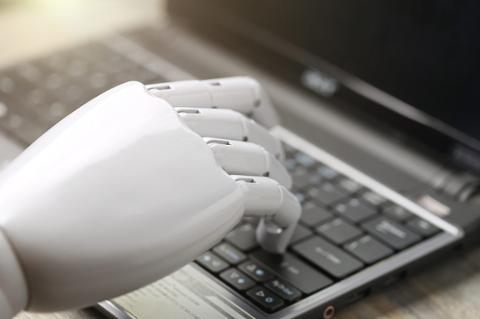Find Out How Automation Might Impact Your City
How will automation affect your city? A group of researchers at Northwestern University’s Kellogg School of Management built an interactive tool that tries to show the impact of the technology on zip codes all over the United States. “They found that, in general, small cities will have higher portions of their workforce replaced by machines than large cities,” read the Kellogg blog posting accompanying the tool. “The reason: While cities of all sizes have many easily automated jobs (like card dealers, fisherman, cashiers, and accountants), large cities like Boston also have larger shares of managerial and knowledge professions (like lawyers, scientists, and software developers).” In other words, the larger a particular city, the greater its proportion of highly specialized jobs—and software has a far more difficult time taking over jobs that demand a high degree of improvisation, creativity, and esoteric knowledge. Machines can more easily automate repetitive tasks, such as some kinds of factory and food-service work. But when it comes to the tool’s actual calculations, there isn’t much variation between the largest and smallest cities. For example, the tool believes that Charleston, WV will eventually have 63.6 percent of its available jobs automated, impacting 122,980 workers; the Los Angeles metropolitan area, meanwhile, will face an automation rate of 60.7 percent (equaling almost 5 million jobs). In general, between 55-65 percent seems to be the going rate for any city’s automation potential. Technology’s inevitable progression means that complex jobs may also end up targeted for automation. In the far future, that might result in a dystopian landscape when it comes to human employment. “Formerly middle-class workers whose jobs have been automated will be pushed to find work at the far extremes of the wage distribution, since those kinds of jobs—CEOs on one end and janitors on the other—will be the only human positions left,” the posting added. “And because the easy-to-automate mid-range jobs are more prevalent in smaller cities, inequality will rise faster there.” For the moment, many tech jobs fall on the “safer” side of the automation spectrum. The Kellogg researchers created yet another automated tool (also on the website) that predicts the average likelihood that certain jobs will be taken over by software. For software developers (i.e., those building applications, including automation tools), the risk is 21 percent; for database administrators, that risk is a bit higher at 39 percent. However, the tool doesn’t encompass some highly specialized tech jobs such as A.I. researcher. Whether or not you subscribe to the particulars of the Kellogg’s team research, one thing’s for certain: automation is only getting more sophisticated, and that will have a sizable impact on jobs of all types.



